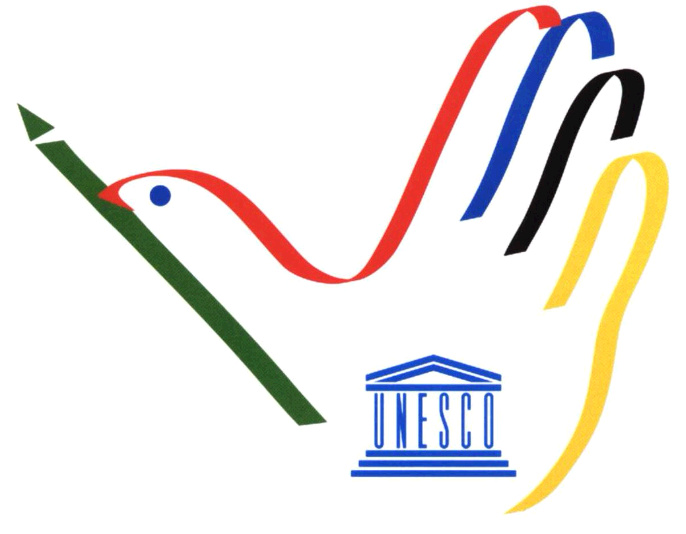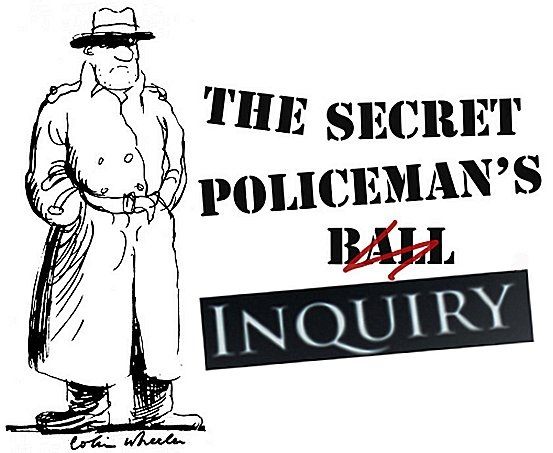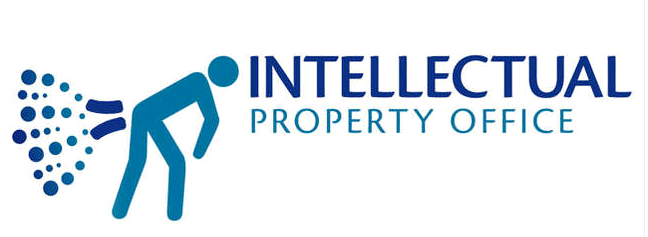Weekly Notes: legal news from ICLR – 6 May 2016
This week’s roundup of legal news and commentary includes press freedom (or lack of it), probation services, undercover anonymity, copyright infringement, and pupillage. Enjoy! Human Rights World Press Freedom Day On 3 May each year we celebrate World Press Freedom Day, which was first proclaimed by the UN General Assembly in 1993, following a recommendation… Continue reading
This week’s roundup of legal news and commentary includes press freedom (or lack of it), probation services, undercover anonymity, copyright infringement, and pupillage. Enjoy!
Human Rights
 World Press Freedom Day
World Press Freedom Day
On 3 May each year we celebrate World Press Freedom Day, which was first proclaimed by the UN General Assembly in 1993, following a recommendation adopted at UNESCO’s General Conference in 1991. You can read more about it on the website of IFEX (an international network of orgnisations campaigning for and promoting press freedom):
On World Press Freedom Day, celebrated yearly on 3 May, people around the globe recognise the fundamental human right of press freedom, weigh the state of press freedom around the world, and pay tribute to the journalists, editors and publishers who risk their lives in defense of the public’s right to know.
Press freedom is an aspect of freedom of expression, which includes the right to receive communications as well as to express them, and is protected under various international instruments and treaties, including the European Convention on Human Rights — which, only last week, we reported that the Home Secretary, among others, wishes Britain to renounce. (See Weekly Notes, 29 April 2016).
Rights Info marked the occasion with several posts, one of which appropriately for us lists Five Times Human Rights Laws Protected Press Freedom, exploring five cases where the press used human rights to defend their right to freedom of expression. For those who wish to read the full judgments, here they are with citations (including links to BAILII):
- The Sunday Times v United Kingdom [1979] ECHR 1; 2 EHRR 245 (ECtHR)
- Goodwin v United Kingdom [1996] ECHR 16; 22 EHRR 123; 1 BHRC 81 (ECtHR)
- The Observer and The Guardian v United Kingdom [1991] ECHR 49; 14 EHRR 153 (ECtHR)
- In re Attorney General’s Reference (No. 3 of 1999); In re British Broadcasting Corpn [2009] UKHL 34, [2010] AC 145 (HL)
- Guardian News and Media Ltd v AB CD [2014] (reported as Guardian News and Media Ltd v Incedal) [2014] EWCA Crim 1861; [2015] 1 Cr App R 36; [2015] EMLR 2 (p 29); [2014] HRLR 28 (p 790); [2014] CN 1617 (CA)
These cases all concern the protection of press freedom in the UK. But the press in the UK enjoys a level of freedom from interference which the press and media in other parts of the world do not enjoy – far from it. Moreover, the lives of reporters and editors in other parts of the world, and our own when reporting in those parts, are often at risk. See, for example, the notes from Turkey and Azerbaijan below.
Probation
NAO report
In June 2014 probation services, previously delivered by 35 self-governing trusts, were divided into two branches: (1) a National Probation Service, advising courts on sentencing of all offenders and supervising higher risk prisoners (about 20%), and (2) 21 private sector Community Rehabilitation Companies (CRCs), supervising low and medium risk offenders (the remaining 80%).
All this was part of the reorganisation introduced by Chris Grayling as Lord Chancellor and Secretary of State for Justice, as part of his “rehabilitation revolution”.
The National Audit Office have now released a report, Transforming Rehabilitation, which they concede is essentially an interim report: “We recognise that these changes have barely started and that it will take two years before prospects for success are clearer”. The benefits are supposedly a saving or reduction in the “£7.4bn to £10.7bn annual cost of reoffending” in England and Wales.
The report notes that services have been sustained throughout a period of major change, but there is a shortage of data on the performance of CRCs and the NPS, and there have been “unsurprising” frictions between CRC and NPS staff at working level, with CRC staff accusing NPS staff of being unduly critical and dismissive, while NPS staff thought CRC too focused on commercial interests rather than the best interests of offenders. High workloads have reduced the amount of supervision and training for all staff, which is not helping matters. And then (groan) there is the problem of the ICT systems used in probation casework, which are “cumbersome” and “create severe inefficiencies”. The National Offender Management System (NOMS) which sits under the Ministry of Justice delayed the introduction of a new interface for sharing offender data because of “other priorities” and “increased scope” (ie, one suspects, changing the spec as they went along, always a good way to make sure any IT project is overdue and overspent).
In addition to operational problems, there have been difficulties in obtaining decent levels of interest in bidding for the CRC contracts, limited understanding by those bidding of the kind of thing they were actually bidding for, many voluntary sector bidders losing out to commercial contractors, and incentives that encourage task-completion by contractors rather than the overall aim of reducing offending.
All that said, this remains an interim report, with warnings and recommendations, rather than the final “damning report” it has been portrayed as in the press, eg in the Independent: Watchdog criticises Government’s privatisation of probation services.
Policing
 Anonymity ruling in Undercover Policing Inquiry
Anonymity ruling in Undercover Policing Inquiry
Sir Christopher Pitchford, chairman of the inquiry, has issued a ruling (appropriately enough on 3 May, World Press Freedom Day) declining to grant automatic immunity to undercover officers giving evidence to the inquiry. Some 33 individuals, nine of them former undercover police officers, have already asked for anonymity. In his 85-page ruling, Sir Christopher pointed out, at [12]:
There is an obvious tension between two competing public interests that arise for
consideration in this Inquiry:(i) the need to examine as publicly as possible evidence, documents and information about undercover policing, a matter that has attracted widespread public concern; and
(ii) the need to keep secret evidence, documents and information about undercover policing whose disclosure may cause harm to the public or to an individual.
It is the correct balance to be struck between these two competing public interests that will be central to the Inquiry’s consideration whether, and if so in what terms, to impose a restriction order on disclosure of evidence, documents and information under section 19 of the Inquiries Act 2005.
The ruling goes on to identify and examine the legal principles to be applied when determining what evidence, documents and information should be made available for public disclosure and what should remain private to the Inquiry team alone; and what factors were relevant to the decision-making process.
See also: BBC: Undercover police denied automatic anonymity at inquiry.
Intellectual property
IPO in penalties “research” fudge accusation
What should be the maximum penalty for online infringement for illegal file sharing and online copyright infringement? A consultation on changes to the penalties for offences under sections 107(2A) and 198(1A) of the Copyright, Designs and Patents Act 1988 (Penalties for Online Copyright Infringement), launched by the Intellectual Property Office (IPO) in July last year, proposed that the maximum sentence for online infringement should be increased from the then maximum of 2 years imprisonment to 10 years, the same as that for physical copyright infringement.
The consultation attracted 1,032 responses, of which 98 per cent (1,011) were opposed to the plan. The 21 who supported the increase were mostly businesses or organisations interested in protecting copyright. The vast majority of the responses (91%) came via a campaign by the Open Rights Group. You can read the responses here (PDF).
The Government response – or riposte – to the consultation was published on 21 April this year, in a separate document entitled Criminal Sanctions for Online Copyright Infringement (PDF). This noted in its Foreword (by Baroness Neville-Rolfe, Parliamentary Under Secretary of State and Minister for Intellectual Property), that the responses to the “have played a significant part in helping to shape the discussion” but reiterated the government’s view that the maximum needed to be increased to ten years. In support of that approach, it said:
“The rationale for the proposed changes originate from a number of areas including recommendations in the 2005 Gowers Review, debates on the IP Bill in 2014, ‘Penalty Fair?’ , other unpublished research and ongoing exchanges with stakeholders.” (emphasis added)
The Penalty Fair report (PDF) on my reading appears to support the government’s line, and cites in turn the earlier Gowers Review of Intellectual Property, which also recommended harmonising penalties for online and physical infringement. However, a consultation (PDF) after the Gowers Report suggested that a better approach might be to increase financial sanctions for online infringement, and keep prison for more serious and dangerous offenders.
But what exactly was meant by that phrase “other unpublished research”?
The Register decided to find out and issued a Freedom of Information request, in response to which the IPO said that it referred to
“inferences and conclusions drawn following the IPO’s internal policy formulation and development” …
“Such information was derived from our analysis of the evidence and opinion provided to us by a wide spectrum of interested parties, over the consultation period.”
In other words, said The Register, the IPO had simply “made it up”. Moreover, the evidence which it purported to analyse – the consultation responses – actually said the opposite! In The Register’s view, both the Gowers Report and (though on this I am not so sure) the Penalty Fair report supported increasing financial rather than custodial penalties, and since the consultation came down overwhelmingly against the increased custodial penalty, the IPO had simply relied on its own internal conclusions and then dressed them up as “research”.
The Register concludes: “You couldn’t make it up” – though in fact that’s just what they said the IPO did do. What they didn’t do, adequately or at all, was to acknowledge, and address, the overwhelming opposition of those who answered its consultation, instead picking up on some of the points made in the individual responses.
To emphasise their dissatisfaction with the IPO’s approach, The Register headlined its article UK govt admits it pulled 10-year file-sharing jail sentence out of its arse and illustrated it with the following, less than respectful, image:
Pupillage
BSB BPTC Report
The Bar Standards Board (BSB) reports that 35% of all UK/EU domiciled graduates enrolled on the Bar Professional Training Course (BPTC) in the academic years commencing in 2011-2013 have gained pupillage since completing the BPTC. This seems quite a high proportion given the “many are called, few are chosen” message that is often put about, though it still indicates that far too many are being persuaded to pay for an expensive vocational course (up to £18,000) with little or no hope of gaining entry to the profession.
The report sets out all the numbers and deals with things like diversity. The summary on the BSB website says:
Forty-seven per cent of pupillages were awarded to women over the period of this report. This is encouraging, but more women than men enrolled on the BPTC over the same period. If men and women are seeking pupillage in the same proportion, this analysis might suggest that men have a greater chance of success. If these assumptions are correct, more work may be required to address gender bias (albeit unconscious) in the process.
In a similar way, this data analysis also suggests that “white” BPTC graduates maybe obtaining first six pupillage in greater proportion than those from BME backgrounds.
The criticism previously made about the BPTC colleges was that they were taking too many students who simply weren’t up to the job, and never would be, and were basically milking them for the money. Is that fair? The BSB say in their report, somewhat defensively, “Many students choose to study the BPTC without ever intending to practise as a barrister in England and Wales.”
When questioned about this, the BSB added that the report was not intended to provide a guide to the competing BPTC providers, or to compare relative performance of graduates in full or part time courses from each provider or what each of them charged. Nevertheless, there remains considerable anxiety that those providers are profiting from a system in which a substantial proportion of their students are unlikely to achieve entry into the profession for which the course is designed. See, for example, this episode of Law in Action.
Dates and Deadlines
Social Media: What’s the point and how to use it successfully.
Middle Temple event moderated by Sir Trevor McDonald with guest speakers Andrew Williams, Felicity Gerry QC and Felicity McMahon. Part of the Survive and Thrive programme.
Thursday 12 May 2016 from 5.30pm onwards. Details.
Legal Charities Garden Party
Gray’s Inn, 16 June 2016 6 – 8pm.
For details contact: admin@cwhls.org.uk
Law (and injustice) from around the world
Azerbaijan
Call for freedom for Khadija Ismayilova
Amnesty International marked World Press Freedom Day by calling for the release of Khadija Ismayilova, who was due to collect the World Press Freedom Award at a UNESCO ceremony being held in Finland on 3 May.
She investigated corruption links between the government and development, and the government-controlled media ran a smear campaign against her. She published evidence of attempts to blackmail her, and state authorities arrested her and put her behind bars. […]
As Khadija predicted, the government shut her down when she refused to stop her investigation. Last year, she was jailed – ironically – for embezzlement and ‘illegal business’. These charges are unfounded: all she is ‘guilty’ of is continuing to do her job as a journalist.
Links: for more on this, and how you can help: Amnesty International
Or to Sign the petition
India
Justice delayed…
An article in the Guardian this week highlights the inordinate delays in the Indian lower courts, where cases are frequently adjourned and case management seems to be minimal. Vidhi Doshi suggests that the accumulated delays are costing the national “billions of rupees each year”.
roblem range from serious failings in criminal cases, such as a murder case that is still being heard 22 years after the death of the victim, to the mundane civil matter such as that which took nine years before a simple clerical error was fixed.
Problems include a lack of judges, lack of quality of judges (they are poorly paid), and a system mired in bureaucracy and in desperate need of the sort of reforms introduced in England and Wales by Lord Woolf MR and more recently Lord Justice Jackson.
Kenya
Anal tests challenged
Homosexual acts are illegal in Kenya, but to prove that have taken place the police have been forcing men accused of such offences to undergo anal examinations, as well as tests for HIV and hepatitis following their arrest. Two gay men have challenged the practice in the High Court in Mombasa, which has given government lawyers a week to respond to the claim that the tests are unconstitutional. Human Rights Watch (HRW), which has called for a global ban on the practice, said:
“Under international law, forced anal examinations are a form of cruel, inhuman, and degrading treatment that may amount to torture. Anal examinations prove nothing, and they accomplish nothing, other than humiliating and demeaning people who are considered moral ‘outcasts’.”
UN experts have also described anal examinations to determine sexuality as “medically worthless”.
Full story: BBC
Turkey
They shoot journalists, don’t they?
The prominent Turkish journalist and newspaper editor, Can Dündar, was shot outside a courtroom in Istanbul, shortly before a hearing in which he was then sentenced to more than five years’ imprisonment. A report in The Guardian explains:
Dündar, editor-in-chief of Turkish daily Cumhuriyet, and fellow journalist Erdem Gül, its Ankara bureau chief, were acquitted on charges of trying to overthrow the government, but convicted of publishing secret state documents.
Dündar was sentenced to five years and 10 months in prison and Gül to five years. Both journalists also still face charges of helping an armed organisation.
Coming just days after World Press Freedom Day, this seems like a doubly cynical attempt by the Turkish government to suppress all media criticism and commentary. Dündar told Reutrers during the hearing that it was “journalism on trial”.
That’s it for now. My thanks to all who led me to stories, mostly my followees on Twitter.
This post was written by Paul Magrath, Head of Product Development and Online Content at ICLR, who also tweets as @maggotlaw. It does not necessarily represent the opinions of ICLR as an organisation. Comments welcome on Twitter @TheICLR.
